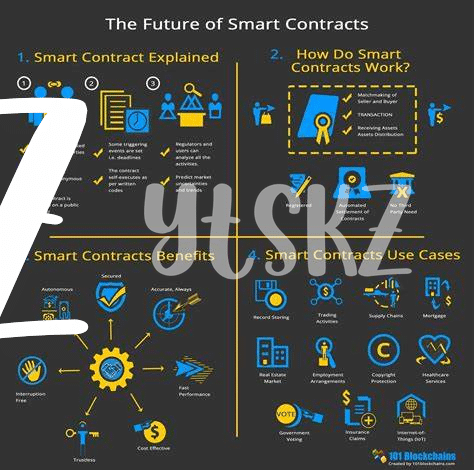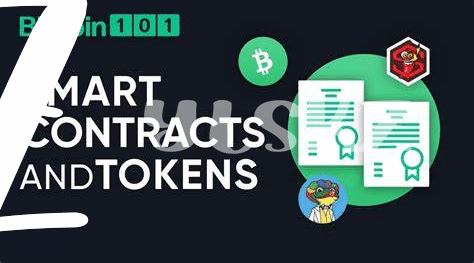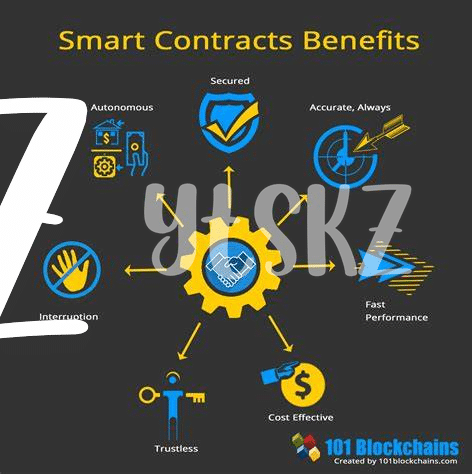What Are Smart Contracts? 🤔

Imagine diving into the world of digital agreements where every promise, transaction, and deal is securely recorded without needing a middleman. That’s the magic of smart contracts. These are not your traditional contracts drafted by a lawyer, but rather, sets of rules coded into the blockchain. Picture a vending machine: you select a snack, insert the right amount of money, and the machine automatically delivers your choice. Similarly, smart contracts execute the agreed-upon terms once conditions are met, all without human interference, ensuring a smooth, automatic process.
The basis of smart contracts lies in automating trust. You might wonder how these digital agreements are so trustworthy. They reside on a blockchain, a digital ledger that’s tamper-proof and fully transparent. Once a smart contract is created, it’s like carving a promise in stone — immutable and visible for all parties involved. This reliability and security are what make smart contracts a cornerstone of the blockchain universe.
| Feature | Description |
|---|---|
| Automation | Executes terms when conditions are met, akin to a vending machine for digital transactions. |
| Trustworthiness | Resides on a tamper-proof, transparent blockchain, ensuring reliability. |
| Immutability | Once created, it cannot be altered, akin to a promise carved in stone. |
How Do Smart Contracts Work? 🛠️
Imagine you’ve just baked a delicious cake, and you want to make sure that everyone who helped you gets a slice once they’ve done their part in the baking process. Smart contracts work in a similar way, but instead of baking, we’re talking about agreements made on the blockchain. These aren’t your typical contracts written on paper; they’re like promises turned into code. When conditions that everyone agreed on are met, like delivering supplies on time, the smart contract automatically does what it’s supposed to do, like making a payment. No need for a middleman to check if everything’s okay!
In a world where we can instantly share photos and messages with people all around the globe, smart contracts aim to make agreements just as easy. Imagine renting an apartment from someone you’ve never met in another country. A smart contract could automatically let you in once you pay, without either of you worrying about trust issues or time zones. On platforms like https://wikicrypto.news/micropayments-and-bitcoin-making-charitable-giving-effortless-and-transparent, you can explore more about how similar technologies enhance security and transparency, making transactions safer and simpler for everyone involved.
Benefits of Using Smart Contracts 🌟

Imagine a world where you can agree with someone halfway across the globe without worrying about trust issues or delays. This is what smart contracts bring to the table. They operate on blockchain technology, meaning they’re not just smart, but also incredibly secure. Once terms are agreed upon, these contracts execute automatically when conditions are met, eliminating the need for middlemen. This not only saves time but also cuts down on unnecessary costs, making transactions smoother and faster.
Moreover, their transparency and security make them a trustworthy option. Every step of the contract is recorded and verifiable, reducing the chances of disputes. They work like vending machines – you put something in (in this case, digital information confirming you’ve met the contract terms), and the contract immediately fulfills its part of the deal. This streamlined approach is revolutionizing industries, ensuring reliability, and fostering trust in transactions, proving that smart contracts are not just a fancy buzzword but a practical tool reshaping our digital landscape.
Common Uses of Smart Contracts in Today’s World 🌍

Imagine a world where buying a house doesn’t require a mountain of paperwork and your trusty pen. That dream is becoming a reality thanks to something called smart contracts. In essence, they’re like traditional agreements but way cooler because they run on a digital platform called blockchain. This means they can automatically do things based on certain conditions. For example, when you’re buying that dream house, a smart contract can automatically transfer the ownership once you pay, without the need for a middle-person or waiting for days. It’s like magic, but it’s real and happening today. From ensuring that artists get paid when their music is played, to making supply chains more transparent so you know your sneakers are genuinely made where they say they are – smart contracts are changing how things are done.
But it’s not just about buying houses or tracking sneaker origins; smart contracts are also beefing up security in the digital world. With every transaction and agreement locked and loaded on blockchain, tampering with information becomes a Herculean task. This is why understanding bitcoin security practices for beginners is so vital. They’re not just for tech wizards but for anyone keen on navigating today’s digital landscape safely. Whether it’s voting in elections without leaving your couch or making insurance claims that pay out instantly when conditions are met, smart contracts are making processes smoother, faster, and more reliable. In this rapidly changing world, they stand out as beacons of efficiency and trust.
Challenges and Limitations of Smart Contracts ❗
While smart contracts on the blockchain hold the promise of making transactions simpler, faster, and more secure, they’re not without their challenges. For starters, writing these digital agreements requires a very specific kind of coding expertise, which means it’s not something just anyone can do without the proper training. Then there’s the issue of trust — these contracts automatically execute transactions based on their coding, but if there’s a mistake or misunderstanding coded into the contract, it can be tough to fix without an agreed mechanism in place. Another hurdle is legality; as revolutionary as smart contracts are, the legal systems around the world are still catching up, which raises questions about their enforceability and recognition under current laws. Lastly, while the blockchain is secure, it’s not entirely immune to attacks, and a security breach could potentially compromise smart contracts as well. Here’s a simple breakdown of these hurdles:
| Challenge | Explanation |
|---|---|
| Coding Expertise | Requires specific skills to write, limiting who can create them. |
| Trust and Mistakes | Difficulties in correcting errors once a contract is deployed. |
| Legality | Uncertain legal status and enforceability across jurisdictions. |
| Security Concerns | While generally secure, not completely immune to attacks. |
These limitations highlight a need for continued innovation and collaboration between technologists, legal professionals, and regulators to fully unlock the potential of smart contracts and ensure they can be used safely and effectively by everyone.
The Future of Smart Contracts and Blockchain 🚀

As we gaze into the future, we see smart contracts and blockchain technology not just as buzzwords, but as integral parts of a digital transformation that will reshape how we interact with the digital world. Imagine a world where transactions, agreements, and even chores like paying your bills become completely automated, secure, and free of intermediaries. This isn’t just a dream; it’s the direction we’re headed! Smart contracts, with their ability to execute themselves when certain conditions are met, are paving the way for a more efficient and trustworthy digital ecosystem. The evolution of these technologies will likely lead to advancements in bitcoin and micropayments in 2024, making the exchange of small amounts of money over the internet smoother and more cost-effective than ever before.
However, the journey ahead is not without its challenges. Issues such as legal recognition, scalability, and security are being addressed, but the progress is undeniable. As we tackle these challenges, the potential for smart contracts to revolutionize industries from finance to healthcare and beyond grows. With continued innovation and collaboration, we can expect to see smart contracts become as commonplace as email or online banking. They promise not just a new way of doing things, but a new way of thinking about trust, agreements, and how we value transactions in our digital age. Keep an eye on the future of public ledgers in 2024 and how they will underpin a new wave of technological advancements – it’s going to be a fascinating journey.
